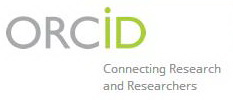KARAKTERISTIK SOSIAL EKONOMI DAN PERILAKU TRANSPORTASI DIGITAL DI KOTA JOMBANG
Abstract
Abstrak
Saat ini, kegiatan TIK (Informasi, Komunikasi dan Teknologi) menggantikan beberapa kegiatan fisik sehari-hari menjadi kegiatan non-fisik di era digital. Penggunaan TIK juga dapat menentukan perilaku perjalanan baik jumlah perjalanan dan rantai perjalanan para pelancong yang juga akan mempengaruhi volume lalu lintas, terutama di jalan-jalan kota. Pengguna transportasi mencoba untuk meningkatkan efisiensi perjalanannya melalui berbagai cara, tetapi sekarang orang cenderung memiliki aktivitas yang lebih bervariasi, sehingga perilaku perjalanan telah berubah, serta pola perjalanan. Tujuan dari penelitian ini adalah untuk menganalisis karakteristik sosial ekonomi rumah tangga pada perilaku perjalanan dengan pengaruh penggunaan TIK. Pengguna transportasi yang menggunakan TIK lebih sering mungkin memiliki pilihan berbeda pada moda transportasi dari seseorang yang tidak melakukan kegiatan online. Pengumpulan data dilakukan dengan menggunakan aktivitas buku harian. Lokasi survei difokuskan di Kota Jombang Indonesia, dan batas kota terdekat, sampel yang digunakan adalah 200 sampel rumah tangga. Teknik analisis dalam penelitian ini menggunakan Regresi Logistik dengan metode Purposive Sampling dengan membangun sejumlah model berdasarkan catatan data perjalanan harian aktivitas fisik individu, data yang diperoleh diharapkan mampu menggambarkan pola perjalanan dan penggunaan pilihan moda pada skala rumah tangga.
Kata kunci: aktivitas buku harian, pola perjalanan, sosial ekonomi, perilaku transportasi, kota Jombang.
Abstract
Undertaking healthy activities and trips is manifested from a set of daily activities and travels. The consequences of undertaking healthy activities and trips also includes reducing the time of some unhealthy activities. At present, ICT (Information, Communication and Technologies) activities are replacing some daily physical activities into non-physical daily activities in the digital age. The penetration of ICT might also determine the trip arrangement either number of trips and trip chains of the travelers that will also influence the traffic volume, especially on urban streets. Travelers try to improve their travel efficiency through a variety of ways, but now people have more varied activities, so that their travel behavior has changed, as well as their travel patterns. The purpose of this study is to analyze the characteristics of household socio-economic on different trip arrangement with the influence of ICT penetration. The ones who use ICT more often might have different choice on transport modes from someone who undertakes no online activities. Data collection is done using an activity diary. The survey location was focused on Jombang City of Indonesia, and the nearest city boundary, the sample used was 200 household samples in this study. The analysis technique in this study uses Logistic Regression with the Purposive Sampling method by constructing a number of models based on individual daily physical activity travel data records, the data obtained are expected to be able to describe travel patterns and mode choice use on a household scale based.
Keywords: activity diary, travel patterns, socio-economic, trip arrangement, Jombang city
Keywords
Full Text:
PDFReferences
Dharmowijoyo, D. B. E. et al, 2015. Collecting a multi-dimensional three-weeks household time-use and activity diary in the Bandung Metropolitan Area, Indonesia. Transportation Research Part A: Policy and Practice, 80, pp. 231–246. doi: 10.1016/j.tra.2015.08.001.
Dharmowijoyo, D. B. E., Susilo, Y. O. and Karlström, A, 2014. Day-To-Day interpersonal and intrapersonal variability of individuals’ activity spaces in a developing country’, Environment and Planning B: Planning and Design, 41(6), pp. 1063–1076. doi: 10.1068/b130067p.
Dharmowijoyo, D. B. E., Susilo, Y. O. and Karlström, A, 2016. Relationships among discretionary activity duration, its travel time spent and activity space indices in the Jakarta Metropolitan Area, Indonesia. Journal of Transport Geography, 54, pp. 148–160. doi: 10.1016/j.jtrangeo.2016.05.012.
Dharmowijoyo, D. B. E., Susilo, Y. O. and Karlström, A, 2018. On complexity and variability of individuals’ discretionary activities. Transportation, 45(1), pp. 177–204. doi: 10.1007/s11116-016-9731-5.
Kang, H. and Scott, D. M, 2010. Exploring day-to-day variability in time use for household members. Transportation Research Part A: Policy and Practice, 44(8), pp. 609–619. doi: 10.1016/j.tra.2010.04.002.
Liu, C., Susilo, Y. O. and Dharmowijoyo, D. B. E, 2018. Investigating intra-household interactions between individuals’ time and space constraints. Journal of Transport Geography, 73(October), pp. 108–119. doi: 10.1016/j.jtrangeo.2018.10.015.
Moiseeva, A. et al, 2014. Sequence alignment analysis of variability in activity travel patterns through 8 weeks of diary data. Transportation Research Record, (2412), pp. 49–56. doi: 10.3141/2412-06.
Neutens, T., Schwanen, T. and Witlox, F, 2011. The prism of everyday life: Towards a new research agenda for time geography. Transport Reviews, 31(1), pp. 25–47. doi: 10.1080/01441647.2010.484153.
Susilo, Y. O. and Axhausen, K. W, 2014. Repetitions in individual daily activity–travel–location patterns: a study using the Herfindahl–Hirschman Index. Transportation, 41(5), pp. 995–1011. doi: 10.1007/s11116-014-9519-4.
Zhang, J, 2013. Urban Forms and Health. Promotion: An Evaluation Based On Urban Forms And Health Health-Related Qol Indicators. In Proceeding of the 13th World Conference on Transportation Research, pp. 1–20.
DOI: https://doi.org/10.29103/tj.v11i2.565
Refbacks
- There are currently no refbacks.
Copyright (c) 2021 Meriana Wahyu Nugroho, Totok Yulianto

This work is licensed under a Creative Commons Attribution-ShareAlike 4.0 International License.
Creative Commons "Attribution-ShareAlike”
Attibusion Internasional (CC BY-SA 4.0)
March and September
In cooperation with Ikatan Sarjana Teknik Sipil (ISATSI NAD) Lhokseumawe












